‘Smart socks’ are helping physiotherapists better assess and treat patients during video consultations, by providing information on weight distribution and range of movement during exercises like steps, squats or jumps.
The wearable technology, developed by PhD candidate Deepti Aggarwal at The University of Melbourne, was trialled with three patients and a physiotherapist at the Royal Children’s Hospital, from February to June 2017.
“Australian physiotherapists are increasingly reliant on video consultations to treat rural and remote patients,” Deepti says.
“This reduces the time and cost for patients travelling to the hospital. However, video consultations are less effective for physiotherapists, as they only provide a two-dimensional view of the patient.
“Physiotherapy is all about movement. To assess patient recovery, physiotherapists must closely observe the subtle differences in their movements. My invention helps them do this by providing valuable s on patients undergoing lower limb rehabilitation, capturing information on weight distribution, range of foot movement, and foot orientation.”
The technology, called ‘SoPhy,’ consist of three sensors embedded in socks that patients wear while performing exercises, and a web-interface that displays the captured data in real time for the physiotherapists.
In the trial, involving patients with chronic pain, SoPhy was found to increase the physiotherapists’ confidence in their assessments by providing information that wasn’t visible in the video.
The information also helped them correct their assessment when the visual cues were misleading, allowing them to adapt the exercises based on the patient’s condition.
“SoPhy became a shared language to discuss the patient’s recovery over time and to plan new therapy goals, and enhanced the doctor-patient communication,” Deepti says.
Seeing the benefits of SoPhy, Deepti says the physiotherapists were keen to use the system both for video and face-to-face consultations, and patients wanted to continue using SoPhy to practice exercises at home.
The idea for the socks came from Deepti’s observations at the Royal Children’s Hospital. When her father (who was living in a small town in India) injured his ankle and was finding it difficult to access treatment, her motivation to develop them increased even more.
The socks currently cost around $300 to make and would primarily be made available to patients who are working with a physiotherapist through tele-consultation. While this might sound expensive for a pair of socks, Deepti says in cases where patients need years of treatment, the cost of travel and accommodation would far outstrip this—and for those with disabilities, would also allow them to access care where they otherwise might not be able to travel.
They are not currently available for purchase, but Deepti is open to wearable technology companies taking them on, and mass production would further reduce the cost of each pair.
“Technologies like SoPhy are not a replacement for face-to-face consultations; rather they’re the next-best solution to support patients in critical situations such as those with severe pain and mobility issues,” Deepti says.
“Through SoPhy, we hope to inspire design thinking towards making novel systems for video consultations that sufficiently meet the needs of patients and clinicians.”
Deepti is also looking to extend the technology for video consultations in other areas where care is limited, such as for pregnant women who can’t regularly travel for face-to-face appointments.
Deepti was the Victorian winner of Fresh Science, a national program that helps early-career researchers find and share their stories of discovery.
In 2017 Fresh Science celebrated its 20th birthday, with 140 early-career researchers nominating for the five Fresh Science events held in Brisbane, Adelaide, Sydney, Melbourne, and Perth.
Fresh Science Victoria was supported by the Royal Society of Victoria, The University of Melbourne, Monash University, CSIRO, Deakin University, RMIT University and La Trobe University.
For interview
- Deepti Aggarwal, The University of Melbourne, 0470 073 052, daggarwal@student.unimelb.edu.au
Media contact
- Lydia Hales, Science in Public (for Fresh Science), 0457 854 515, lydia@scienceinpublic.com.au
- Holly Bennett, The University of Melbourne, 03 8344 7758 / 0466 514 367, holly.bennett@unimelb.edu.au
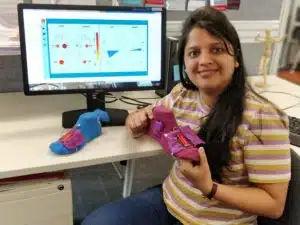
Credit: Centre for ScoialNUI

Credit: Centre for ScoialNUI
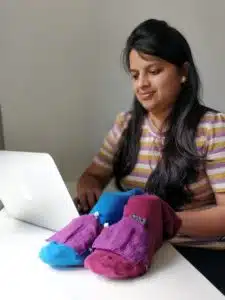
Credit: Centre for ScoialNUI
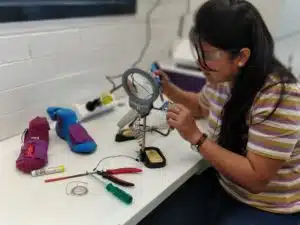
Credit: Centre for ScoialNUI

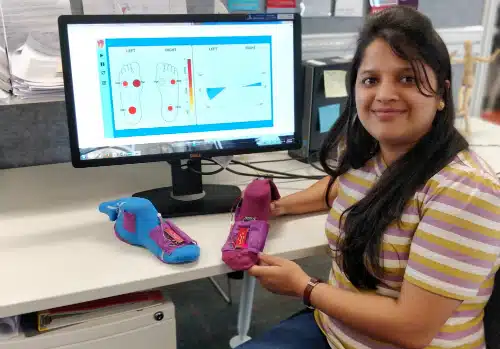
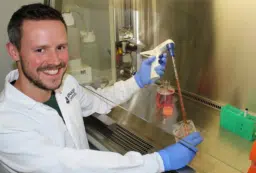
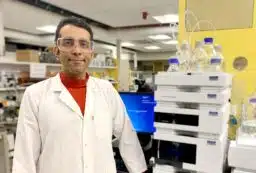

 Fresh Science is on hold for 2022. We will be back in 2023.
Fresh Science is on hold for 2022. We will be back in 2023.